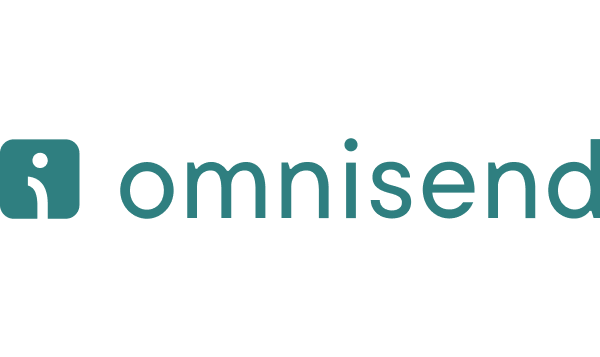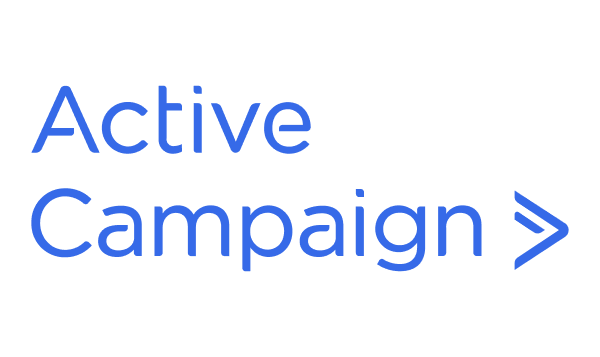Klaviyo Pricing: The Honest Breakdown for 2026
Capterra, G2, Trustpilot, and Reddit to create an objective evaluation. Learn more about our review methodology
I’ve used Klaviyo on and off for years across different ecommerce projects without any noticeable bumps in the road. However, the 2025 pricing changes and soft Klaviyo overage charges that kick in when you exceed your plan limits really caught me off guard.
Klaviyo had shifted from billing by email volume to active profile count, added automatic plan upgrades, and applied a 25% price increase cap for existing customers.
While I still appreciate the platform’s powerful automation and Shopify-native integrations, these new costs and hidden fees have made me rethink Klaviyo ROI and overall budgeting approach—especially without any Klaviyo annual billing discounts to lock in predictable pricing.
This guide breaks down everything I’ve learned about updated Klaviyo pricing plans, from monthly plans and SMS costs to transactional email blocks, and compares it with key competitors so you can decide if it’s still worth the price.
Klaviyo Pricing at a Glance
Plan
Price (Starting)
Subscribers
Email Sends
Key Features
Free
$0
Up to 250
500 emails/month
Basic email marketing features, email support
$20/mo
500+
Scales with list size
Advanced segmentation, reporting, integrations
Email + SMS
$20/mo
500+
Scales with list size, 150 SMS messages
Email and SMS marketing, automation workflows
Enterprise
Custom
150,000+
Unlimited
Dedicated support, more advanced features
Klaviyo Plans & Costs Reviewed
No matter what size business you come from, email marketing will always be one of the most pressing questions. So, here’s the Klaviyo pricing, summarized for your convenience:
Free Plan Review
Feature
Limit
Subscribers
250
Monthly Emails
500
Users
1
Templates
Unlimited
A/B Testing
None
Support
Email only (first 60 days)
I tested Klaviyo’s free plan recently for a new project, and it’s far more restrictive than what I remember from previous years—now capped at just 250 subscribers and 500 monthly emails. Since the February 2025 transition to profile-based pricing, even this free tier counts all active profiles—not just engaged subscribers—toward your 250-person limit.
I quickly discovered it lacks A/B testing, advanced segmentation, and live support, and that Klaviyo branding doesn’t help either (at least this one’s expected). While it worked for testing basic workflows and managing a small contact list, I outgrew it within weeks—much faster than with the free plans of competitors I’ve tried.
Sender, for instance, offers up to 15,000 emails monthly to 2,500 subscribers completely free—I switched my smaller projects there and haven’t looked back.
Email Plan
Feature
Limit / Details
Price (Starting)
$20/month for 500 subscribers
Subscribers
Scales with list size (tiered pricing)
Monthly Emails
Unlimited (within fair use)
Users
1 (additional users at extra cost)
Templates
Full library, advanced customization
A/B Testing
Available
Support
Email & limited chat support
Klaviyo’s email pricing plan is what I use for most of my projects, starting at $20/month for 500 subscribers. The plan includes unlimited monthly email sends and access to Klaviyo’s advanced automation—features I genuinely value for creating targeted campaigns.
But here’s what hit me hard: following the February 2025 Klaviyo pricing tier update, this plan now charges based on how many active profiles you have rather than email volume. My costs increased significantly for lists with less engaged subscribers, since the Klaviyo cost per contact now applies whether people engage or not.
While the ecommerce-focused automation is excellent, the steep price jumps have made me reconsider whether smaller projects can justify the expense, especially compared to other email marketing platforms that offer similar features for less.
Email + SMS Plan
Feature
Limit / Details
Price (Starting)
$35/month for 500 subscribers + 150 SMS credits
Subscribers
Scales with list size (tiered pricing)
Monthly Emails
Unlimited (within fair use)
SMS Credits
Starting bundle included, buy more as needed
Users
1 (extra seats available at additional cost)
Templates
Full library + automation flows
A/B Testing
Available
Support
Email & limited chat support
I upgraded to the Email + SMS plan for one ecommerce store project, which starts at $35/month for 500 subscribers. The starter monthly SMS/MMS credits disappeared faster than expected, and costs rose quickly when we scaled our email and SMS campaigns—especially for international messaging.
The multichannel automation is powerful, and I appreciate the advanced flows and segmentation. However, the combined pricing often surprises me when the monthly bill arrives. I’ve found it only makes sense for stores that can actively monetize both email and SMS audiences, and I’ve learned to send fewer SMS messages to control costs.
Klaviyo Enterprise
Feature
Limit / Details
Price (Starting)
Custom pricing (typically for 150,000+ profiles)
Subscribers
150,000+
Monthly Emails
Unlimited
Users
Multiple (based on contract)
Templates
Full library + custom design support
A/B Testing
Advanced testing & reporting
Support
Dedicated account manager, priority support
Extras
Dedicated IPs, advanced Klaviyo Customer Data Platform (CDP)
I’ve worked with a few brands on Enterprise plans, typically those with 150,000+ profiles who need dedicated support for their sales team and advanced marketing analytics. The pricing negotiations were always custom and based on specific needs like dedicated IPs.
While the dedicated account manager and priority support were game-changers for large-scale campaigns, the lack of a transparent Klaviyo pricing structure made budgeting challenging. Every add-on seemed to come with additional Klaviyo fees that weren’t clear upfront.
It’s worth noting that brands spending over $10,000/month are automatically enrolled in Klaviyo One, which adds a 20% fee to your base plan.
Klaviyo Hidden Fees & Extra Costs
This is where I learned some expensive lessons. While Klaviyo’s base plans cover core features, I’ve encountered numerous hidden costs that inflated my bills.
Since February 2025’s shift to active profile billing, I discovered that even unsubscribed contacts impact Klaviyo monthly cost—a painful change from the previous email volume model. I was shocked to discover that suppressed contacts still count toward limits, which unexpectedly affected my next Klaviyo billing cycle.
Additional charges for SMS credits sneak up quickly, and international texting costs more than expected. What really frustrated me were the auto upgrades—I’ve been bumped to higher tiers without warning when exceeding the plan’s limit, another sneaky tactic out of Mailchimp’s playbook.
Finally, before I proceed with the in-depth analysis of Klaviyo’s pricing features, it’s worth pointing out that transactional emails are billed separately through pre-paid blocks, as in—not included in your plan.
How to Reduce Klaviyo Costs
If you’ve been a long-time user, you probably noticed the recent Klaviyo pricing changes—and they likely didn’t leave you giddy with excitement. If you enjoy Klaviyo but have some reservations about the cost, here are a few practical ways to save money on your monthly bill:
- Suppress inactive profiles. Remove unengaged contacts before your billing cycle resets to avoid paying for profiles that never convert;
- Run sunset or re-engagement flows. Attempt to reactivate dormant users first, then suppress anyone who doesn’t respond;
- Maintain strong list hygiene. Regularly clean bounced, unengaged, or legacy contacts to prevent paying for dead weight;
- Understand billing thresholds. Track your active profile count so you know exactly when an auto-upgrade will trigger;
- Use flexible sending strategically. Temporarily increase send volume during promotions or peak seasons without locking into a higher plan;
- Segment before you send. Target high-intent segments instead of blasting your full list to keep engagement (and active profiles) in check;
- Audit integrations and data sources. Disable unused integrations that may be quietly creating or reactivating profiles.
The 25% Appreciation Discount (who qualifies)
Klaviyo’s 25% Appreciation Discount is meant to ease the transition for existing customers affected by the shift to active-profile-based billing. Rather than offering a flat Klaviyo discount code, it temporarily caps Klaviyo price increases at 25% above your previous plan, preventing sudden jumps in monthly costs.
Say, a customer was previously paying $100/month but now qualifies for a $200/month plan under the new model. Klaviyo caps the increase at 25%, which means they’d pay $125/month instead of $200—effectively receiving a $75 appreciation discount off the new plan’s list price. Naturally, once the transition period ends, normal pricing applies under the new billing model.
90-Day Suppression Lock Rule
Klaviyo’s 90-Day Suppression Lock Rule means that once you suppress a profile, it won’t count toward your bill. The flipside of this is that you also can’t unsuppress it for 90 days. Essentially, this prevents users from temporarily suppressing contacts just to dip below a billing threshold.
This rule encourages intentional list cleanup—so before suppressing profiles in Klaviyo, make sure they’re truly inactive or no longer valuable to your marketing efforts.
10x Email Send Cap
Klaviyo’s 10× Email Send Cap limits how many emails you can send each month to 10 times your active profile count. For example, if you have 5,000 active profiles, you can send up to 50,000 emails that month.
This cap is designed to prevent excessive blasting and encourage more targeted sending. If you need more volume, you’ll have to upgrade your plan or reduce your active profile count in Klaviyo.
Klaviyo Monthly Pricing by Subscriber Count
Subscribers
Email Plan
Email + SMS Plan
500
$20
$35
1,000
$30
$45
2,500
$60
$75
5,000
$100
$115
10,000
$150
$165
25,000
$400
$415
50,000
$720
$735
100,000
$1,380
$1,395
*These prices reflect Klaviyo’s February 2025 model based on active profiles. I’ve noticed existing customers transitioning from the old system sometimes see different rates due to the 25% increase cap.
Klaviyo Transactional Email Pricing
Klaviyo’s transactional emails are for the flows triggered by a customer action—order confirmations, shipping updates, password resets and whatnots. Under this marketing platform’s domain, they must be strictly informational, which means no promos, discounts, or product plugs.
Furthermore, transactional emails now live in metric-triggered flows and need to be approved by Klaviyo’s support as transactional. While it does sound weird at first, the whole confirmation procedure is usually relatively smooth and doesn’t take longer than 24 hours.
Plus, you no longer have to pay extra for transactional email and SMS on top of your main plan, which used to be the case.
Klaviyo SMS Pricing & Costs
Country
Cost per SMS
Sender ID
United States
$0.01–$0.02
Local number
Canada
$0.036-0.04
Local number
United Kingdom
$0.04–$0.06
Alphanumeric
EU Average
$0.05–$0.10
Alphanumeric
Australia
$0.048–$0.05
Alphanumeric
India
No longer available
No longer available
You’ll purchase credits to send mobile messages. Each type of message uses a different number of credits, depending on where the message is being sent to. For example, 1 SMS sent to the United States costs 1 credit.
SMS Pricing by Country Table
Country
SMS
MMS
USA
1 credit*
3 credits
Canada
3 credits
5 credits
UK
5 credits
N/A
Australia
4 credits
15 credits
France
7 credits
N/A
Ireland
9 credits
N/A
New Zealand
10 credits
N/A
Germany
12 credits
N/A
Netherlands
12 credits
N/A
*Klaviyo’s messaging starts at 250 messages per month, which equals 1,250 credits, with credit allotments increasing gradually as message volume scales.
Klaviyo vs. Competitors: Which Costs Less?
What jumped out immediately was the value gap once the list size starts climbing. Sender stays aggressively affordable, starting at $13/month, while Klaviyo ramps up quickly—especially if you’re paying for a bigger contact base.
I’ve found Sender is great when you want solid email marketing and basic automation without the premium price tag. But Klaviyo still wins when ecommerce is the core of your business: deeper Shopify integrations, sharper segmentation, and more powerful automation logic tend to justify the higher cost—if you’ll actually use those features.
Contacts
Klaviyo Email
Sender
You Save
2,500
$60/mo
$13/mo
78%
5,000
$100/mo
$23/mo
77%
10,000
$150/mo
$40/mo
73%
25,000
$400/mo
$82/mo
80%
50,000
$720/mo
$159/mo
78%
100,000
$1,380/mo
$257/mo
81%
The first thing that caught my attention was how similar the pricing had become—especially after Klaviyo’s pricing update, which feels shaped based on Mailchimp’s playbook. Both platforms now start at $20/month for 500 subscribers. Keep in mind, this was one of the areas where Klaviyo had a leg up against most competitors.
I’ve used both extensively, and while Mailchimp’s entry prices are fairly similar and offer more basic automation options, I often need to upgrade for the advanced automation features—something Klaviyo includes from the start. Klaviyo’s costs scale faster, but the Shopify integration and segmentation tools are noticeably more robust.
As for the most apparent comparison: Klaviyo vs. Omnisend. I switched one project to Omnisend, which starts at $11/month for 500 contacts—significantly cheaper than Klaviyo’s $20. The Klaviyo SMS cost structure is also less transparent compared to Omnisend.
While Klaviyo offers deeper customer data tools, I’ve found Omnisend delivers most of what I need for ecommerce businesses at a fraction of the cost.
Is Klaviyo Worth the Price?
Business Type
Recommended Plan
Monthly Cost
Best Alternative
Startup
Free
$0
Sender
Small Business
$45–$150
Mailchimp
Ecommerce
Email + SMS
$60–$200+
Omnisend
Agency
Email / Advanced
$150+
ActiveCampaign
Enterprise
Enterprise
$500+
HubSpot / Salesforce
After years of using Klaviyo, I believe it’s worth the investment if you’re an established ecommerce brand with a large customer base and high average order value. Following February 2025, when Klaviyo transitioned to profile-based billing, the value proposition shifted dramatically.
I’ve seen my costs increase significantly for databases with less engaged subscribers. The Shopify integration and customer data tools remain powerful growth drivers at scale.
However, for my smaller projects and seasonal stores, the high entry price and hidden fees have become deal-breakers. I’ve moved several of my own projects to alternatives like Omnisend, Mailchimp, or especially Sender (which saved me hundreds monthly on my smaller stores), which deliver similar functionality at a fraction of the cost.
Klaviyo Pricing FAQs
Yes, Klaviyo’s pricing is always listed in USD, regardless of the user’s location. However, charges appear in local currency on billing statements depending on the payment provider. I’ve noticed this can cause slight variations due to exchange rates.
You cannot switch the default currency in Klaviyo, since they don’t allow you to set a preferred one. All my invoices are in USD, and currency conversion is handled through the bank. For my international clients, I recommend closely monitoring exchange rates.
In February 2025, Klaviyo shifted to active-profile-based billing. This means that you’re charged based on the number of active contacts, not just email send volume. Plans auto-upgrade if active profiles exceed your tier, with options for flexible sending and auto-downgrade. The free tier and SMS pricing remained, but many users saw higher costs as lists grew.
If your active profile count exceeds your current plan’s limit, Klaviyo will automatically upgrade you to the next (pricier) tier at the start of your billing cycle so your plan matches your active profiles.
- Hands-on testing across multiple email marketing tools
- Fair comparisons using a unified evaluation process
- Insights verified with real user reviews from trusted sources
- No sponsorships or affiliate ties
- Clear, unbiased scoring and methodology




